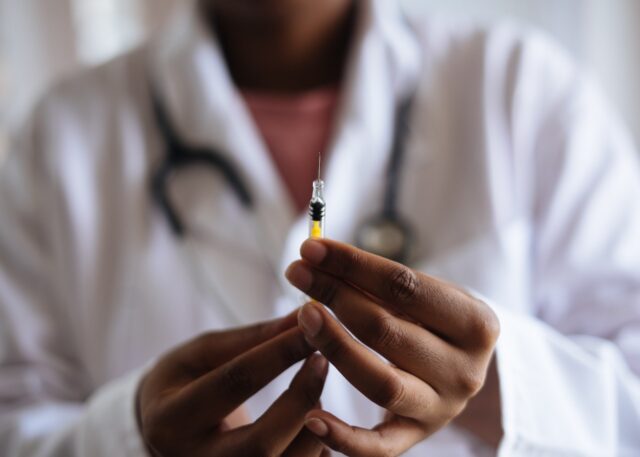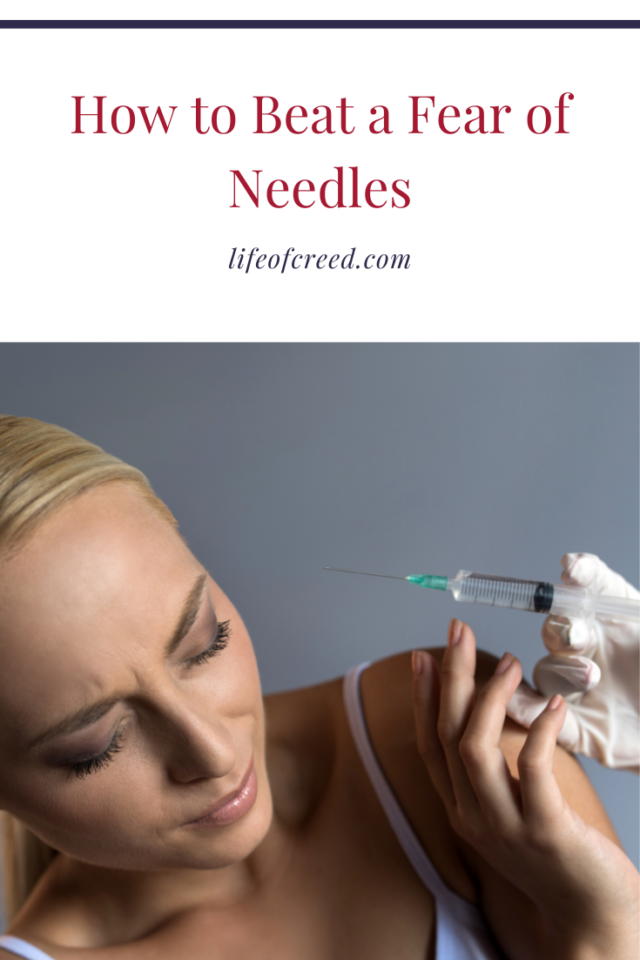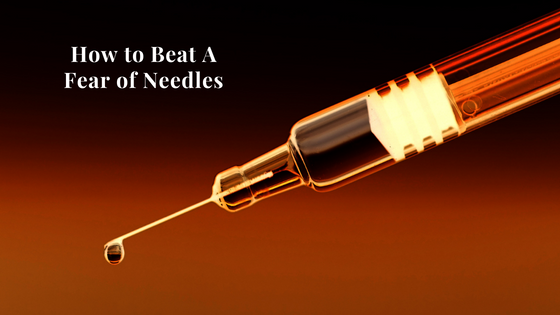Are you filled with intense fear whenever you have to get an injection? Does even the sight of a syringe give you anxiety? Have you been known to faint or feel sick in the past? You could suffer from a phobia known as trypanophobia (i.e. the fear of needles).
The fear of needles is common in children – as much as 2 in 3 children fear needles. This phobia becomes less common as many of us get older, although research shows as much as 1 in 10 adults still suffer from trypanophobia.

Overcoming this fear can be important – from receiving vaccines to getting important diagnostic blood tests, there are many situations where getting an injection can be necessary for preventing and treating health problems. Below are a few tips on how to beat this fear.
Use relaxation strategies
While waiting for your injection, it could be worth trying a few relaxation strategies. Breathing exercises are a popular way to stay calm – try taking slow deep breaths and counting to four before exhaling. You could also try drinking herbal teas beforehand or you could listen to music that relaxes you.
Look away
Seeing the needle can be a big trigger for many people. When you get into the room where you’re having the injection, make an effort not to look at the needle. Many nurses and doctors know that many people don’t like to see the needle and will try not to make a big deal of flashing it around, however, if you don’t even want to catch a glimpse of it, it could be worth warning them beforehand so that they can tell you when to look away.
Distract yourself
Try not to think about the injection. Distract yourself by focusing on something else such as counting tiles on the wall or tapping your foot to a rhythm in your head. Many people with this phobia find that bringing a friend or family member to talk about things helps distract them. Some nurses and doctors may even be able to distract you with conversation.
Numb the area
Some people fear the pain or sensation of an injection. It’s possible that you may be able to request a numbing agent to reduce the feeling in the area. This could make getting an injection much easier.
Understand the source of your fear
The fear of needles can have so many sources. Some people have a bad experience where a nurse can’t find the nerve and worry this will happen again – requesting some experience could be a way around this. In the case of blood tests, some people’s fear may be more about blood, in which case you may want to look more into this side of things. Some people’s fear may be more to do with dirty needles and accidentally getting stabbed – which may be a risk in some industries such as cleaning. A course such as this one in bloodborne pathogens cprcertificationnow.com/products/bloodborne-pathogens-certification-online could help you to better understand the dangers so that you can exercise safely.
Expose yourself to needles
You’re more likely to get scared if you go a long time without getting an injection. Consider challenging yourself to get injections by accepting voluntary vaccines. Some people are even able to conquer their fear by volunteering to give blood. There could also be forms of needle exposure beyond injections such as acupuncture or tattoos that you can look into.
Know when to get therapy
If your fear is so intense that you avoid injections at all costs, it may be worth seeking out therapy. A professional therapist may be able to help you slowly conquer your fear through various methods such as CBT and exposure therapy. Read more about this here at verywellmind.com/therapy-options-for-phobias-2672008.
About the Author
Contributing Author
This article is written by a contributing author.
If you found this post useful, please Pin It!

Hi, before you go…
Don’t forget to join the email list!
Don’t forget to join in on the conversation on social media.![]()
![]()
![]()
![]()
![]()


